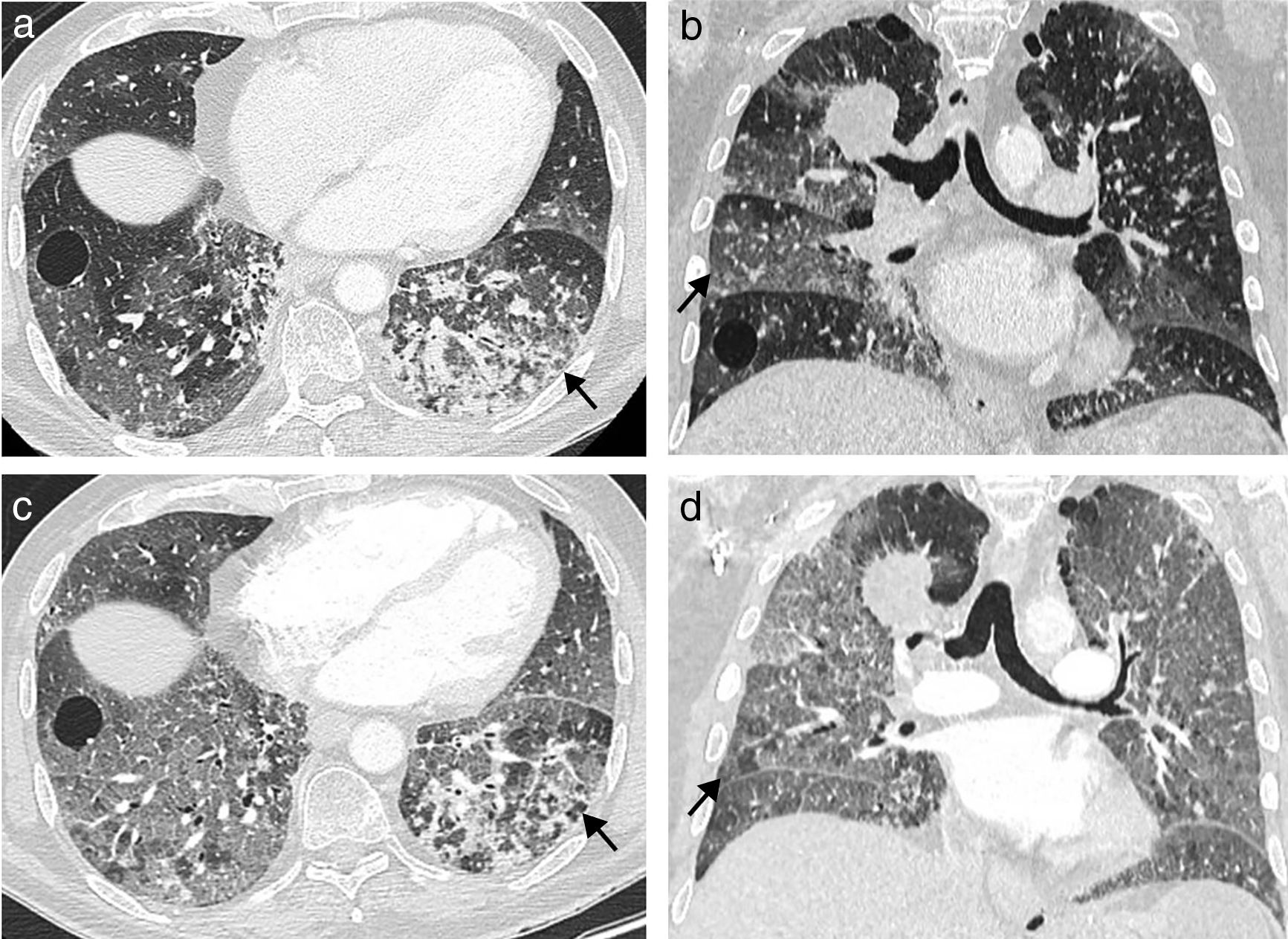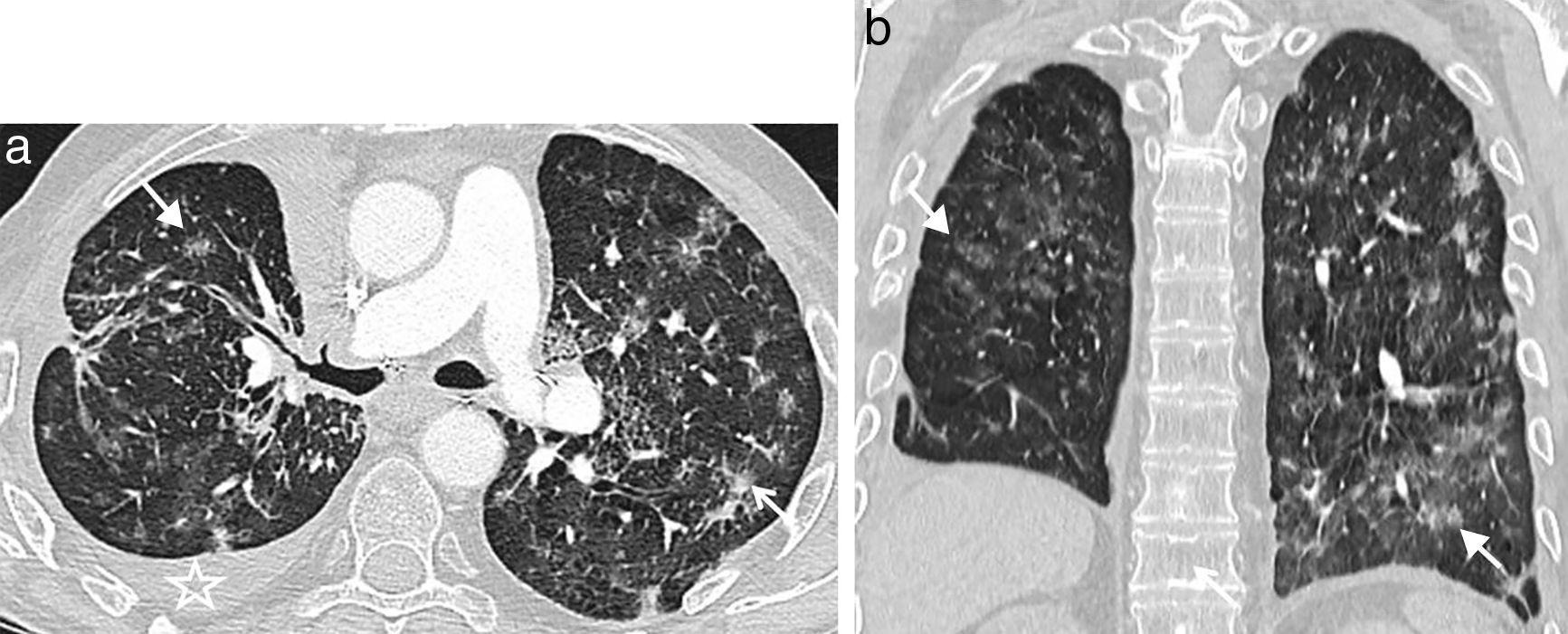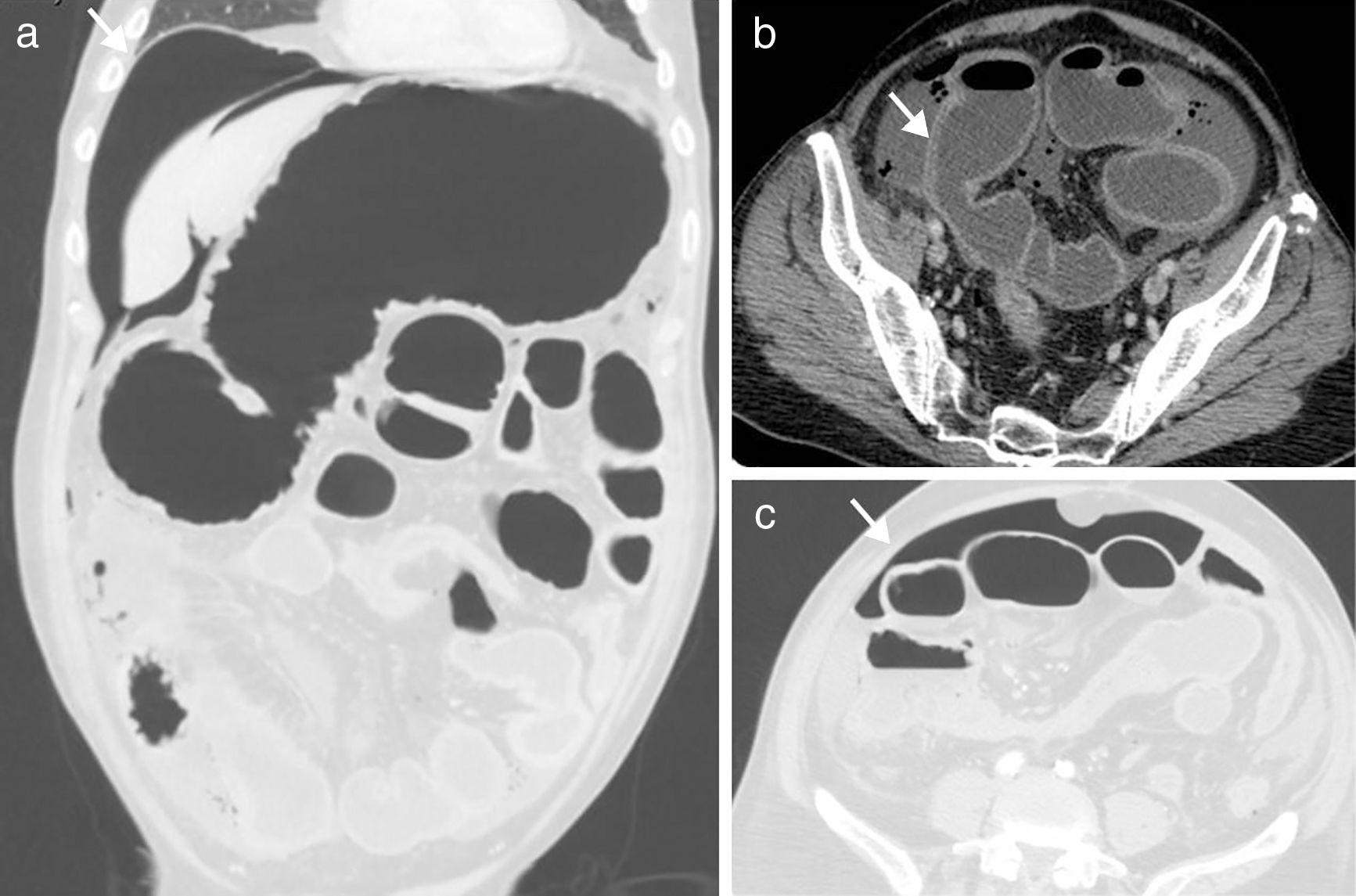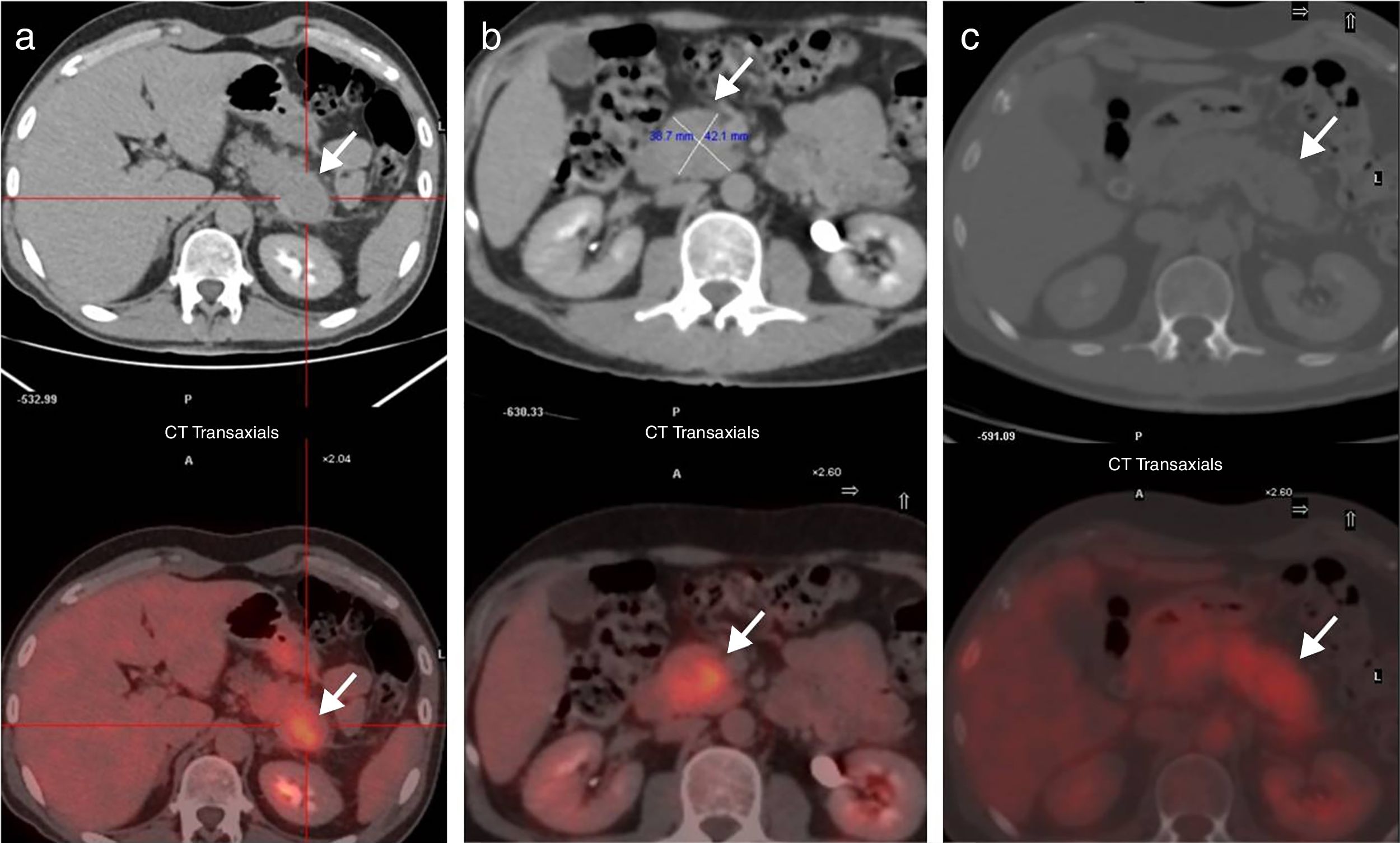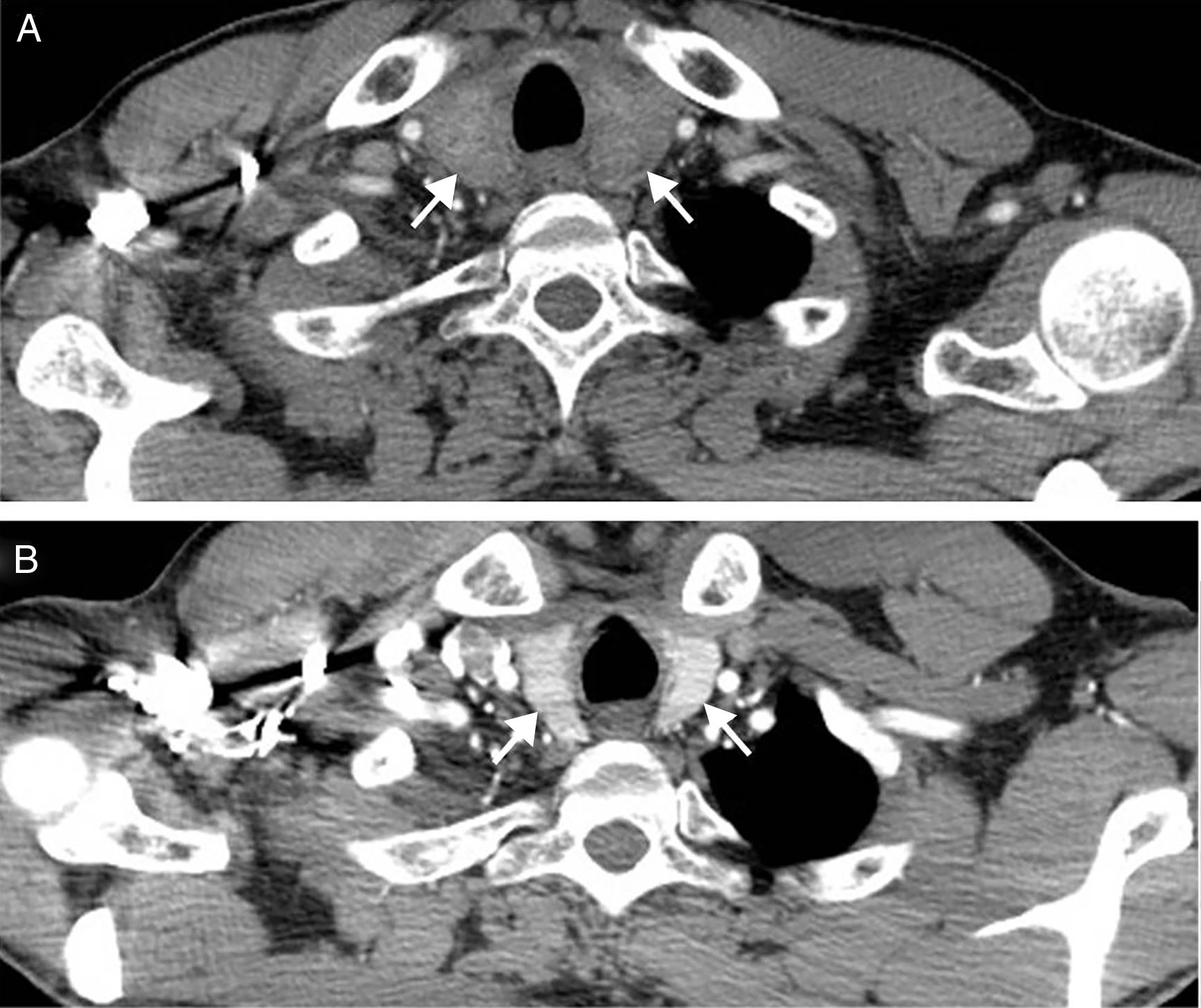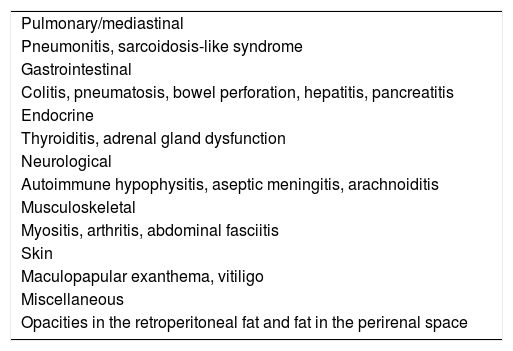In patients with oncologic disease, immunotherapy has become established as an alternative or complementary therapy to traditional treatment options (surgery, radiotherapy, and chemotherapy). Currently available immunotherapy modes can be divided into two types: passive and active. The active type strengthens the immune system's response to tumour cells by activating both humoral immunity and cell-mediated immunity, using the adaptive response. This article aims to analyse the radiologic patterns of the response to immunotherapy through immune-response-related criteria and to describe the main adverse effects associated with this treatment approach.
ConclusionImaging tests play a fundamental role in the follow-up of oncologic patients and in the assessment of their response to treatment. Immunotherapy represents a challenge for radiologists both in the evaluation of the response to immunotherapy and in the detection of the adverse effects associated with this treatment approach.
La inmunoterapia en oncología se ha establecido como una terapia alternativa o complementaria al tratamiento tradicional (cirugía, radioterapia y quimioterapia). La inmunoterapia disponible actualmente se divide en dos categorías: pasiva y activa. La respuesta activa refuerza el sistema inmune para responder frente a las células tumorales activando tanto la inmunidad humoral como la celular, utilizando la respuesta adaptativa. El objetivo de este trabajo es valorar los patrones radiológicos de respuesta al tratamiento inmunológico mediante los criterios de respuesta relacionados con la inmunidad (immune related response criteria [irRC]) y describir los principales efectos adversos asociados.
ConclusiónLas pruebas de imagen tienen un papel fundamental en el seguimiento y valoración de la respuesta al tratamiento en pacientes oncológicos. La inmunoterapia es un desafío en el enfoque radiológico tanto para la valoración de la respuesta al tratamiento como para la correcta detección de los efectos adversos asociados.










